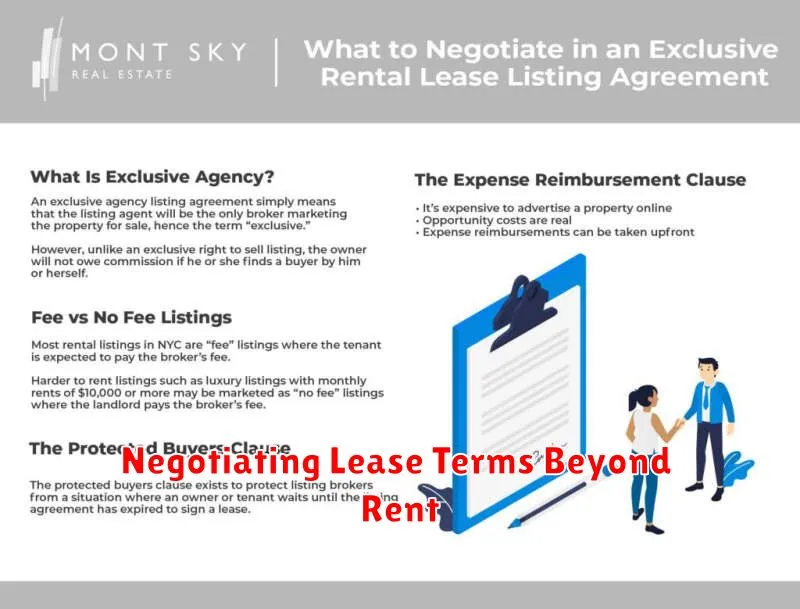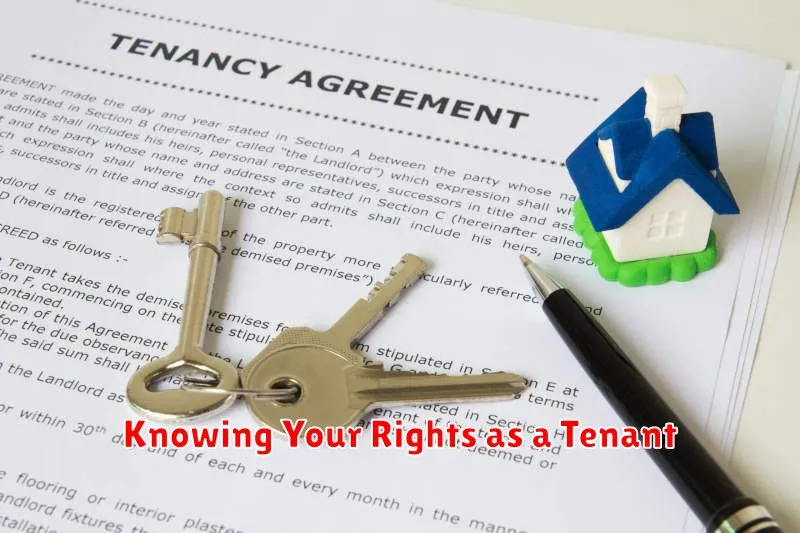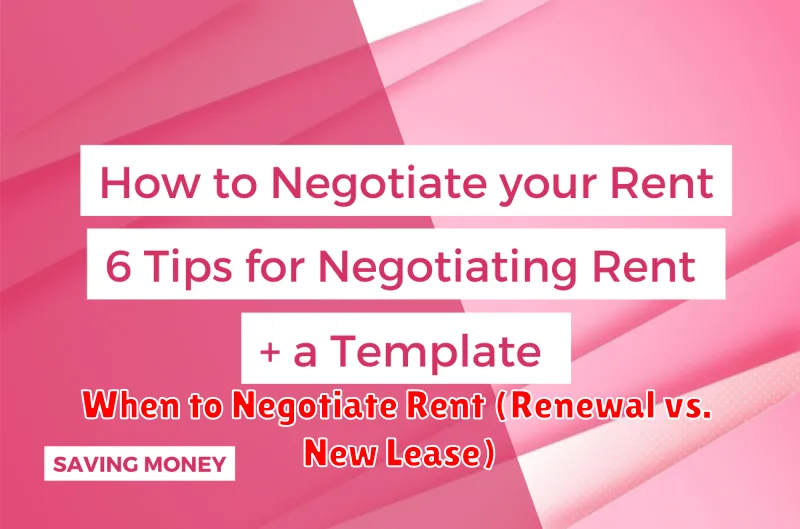Are you tired of paying sky-high rent? Do you feel like your landlord is taking advantage of you? Don’t worry, you’re not alone. Negotiating rent can be a daunting task, but with the right approach, you can secure a more affordable deal. This article will provide you with proven tips on how to negotiate rent with your landlord, empowering you to save money and get the best value for your living space. From understanding your market value to mastering the art of communication, we’ll equip you with the strategies you need to achieve a successful negotiation. So, get ready to unlock your bargaining power and say goodbye to exorbitant rent payments.
Researching the Local Rental Market
Before you start negotiating with your landlord, it’s crucial to understand the current rental market in your area. This involves researching comparable properties, their rental rates, and any recent trends in the market. Websites like Zillow, Trulia, and Apartments.com are excellent resources for this purpose.
By comparing your property to similar ones, you can gain a better understanding of its fair market value. This information will empower you to confidently negotiate with your landlord based on objective data rather than speculation.
Consider factors like:
- The size and type of your property
- Its location and amenities
- The condition of the property
- The overall demand for rentals in your area
Understanding these factors will help you assess the competitive landscape and strengthen your position during the negotiation process.
Understanding Your Landlord’s Perspective
Before approaching your landlord about rent negotiation, it’s crucial to understand their perspective. Landlords are often juggling several factors: mortgage payments, property maintenance, and insurance, all of which contribute to their overall expenses. While you might be focused on lowering your rent, remember that your landlord needs to maintain a positive cash flow to ensure they can cover these costs. It’s also important to consider that they likely have other financial obligations and are working to generate a sustainable return on their investment. By understanding their financial priorities, you can approach the negotiation with empathy and a willingness to find a solution that works for both parties.
Preparing for the Negotiation
Before you even think about sitting down with your landlord to negotiate rent, it’s crucial to be prepared. This means gathering all the necessary information and formulating your arguments. Here’s how to get ready:
Know Your Market Value: Research comparable rental properties in your area. Websites like Zillow, Trulia, and Apartments.com can help you determine the current market rate for similar units. This information gives you a solid baseline for your negotiations.
Review Your Lease Agreement: Carefully examine the terms of your existing lease. Note the lease duration, renewal clauses, and any options for early termination. Knowing your contractual obligations is vital in any negotiation.
Identify Your Negotiation Points: Determine your top priorities for rent reduction. Are you looking for a lower monthly payment, a shorter lease term, or specific concessions like waived fees? Clearly articulate your needs and be prepared to explain your reasoning.
Gather Supporting Evidence: If you’re seeking a rent reduction due to property issues, gather documentation like photos, repair estimates, or communication logs with your landlord. This evidence strengthens your position and demonstrates the validity of your request.
Develop a Negotiation Strategy: Plan your approach before the meeting. Consider your desired outcome and your fallback options. Be prepared to compromise and be open to exploring different possibilities.
Presenting Your Case for Lower Rent
When trying to negotiate a lower rent, it’s important to present a strong and compelling case to your landlord. Here are some strategies to help you make your argument:
Highlight the Property’s Deficiencies: If the property has issues like broken appliances, leaks, or maintenance problems, document them with photos and videos. Explain how these issues negatively impact your living experience and warrant a reduction in rent.
Compare Rents in the Area: Research average rent prices for comparable properties in your neighborhood. Show your landlord that the current rent is higher than the market value. You can use online resources or real estate agents to find this information.
Offer a Long-Term Lease: Demonstrate your commitment to staying in the property by offering a longer lease agreement in exchange for a lower rent. Landlords often appreciate stability and a guaranteed tenant.
Be Professional and Respectful: Approach your landlord with a calm and respectful demeanor. Avoid being accusatory or demanding. Focus on finding a mutually beneficial solution that acknowledges both your needs and the landlord’s interests.
Offer Incentives: Consider suggesting a compromise, like offering to pay a higher security deposit or handling some minor repairs in exchange for a lower monthly rent.
Remember that your goal is to reach a compromise with your landlord, so be prepared to negotiate and potentially make concessions.
Offering Incentives or Compromises
While it might seem counterintuitive, offering your landlord an incentive or compromise can be a powerful negotiation tactic. This demonstrates your willingness to collaborate and can make your proposal more appealing. Here are a few ideas:
Offer to sign a longer lease: Landlords appreciate long-term tenants, as it provides them with predictable income and reduces the hassle of finding new renters. Offering to sign a longer lease, perhaps for 18 months or even two years, could sway them to lower the rent.
Propose paying rent upfront: Landlords often prefer receiving rent on time and without delays. Offering to pay a few months’ rent upfront can demonstrate your financial stability and might lead to a rent reduction.
Suggest improvements you can make: If you’re willing to invest in making some improvements to the property, such as painting, fixing minor issues, or landscaping, offer this as a trade-off for a lower rent.
Remember to be upfront and clear about your proposals, and be prepared to negotiate. A win-win situation can be reached where both you and your landlord benefit from the arrangement.
Negotiating Lease Terms Beyond Rent

While the monthly rent is the most prominent part of a lease agreement, there are other terms you can negotiate to ensure a smooth and comfortable stay. By understanding these key aspects and leveraging your position, you can customize your lease to better suit your needs.
One important point to consider is the lease duration. Discuss with your landlord the possibility of a longer or shorter lease term than the standard offering. A longer lease could potentially secure a lower rent, while a shorter term might be more beneficial for those seeking flexibility.
Another crucial aspect is the security deposit. Negotiate a reasonable amount, as a higher deposit may be a financial burden. You can also discuss the conditions under which the deposit is refundable, ensuring a clear understanding of deductions.
Negotiating pet policies is essential for pet owners. If you have a pet, discuss the allowed pet types, breed restrictions, and any associated fees. Ensure the pet policy aligns with your needs and that you have a clear understanding of the responsibilities involved.
Don’t overlook the importance of parking. Negotiate a designated parking space if it’s available or explore options for street parking if a garage or driveway isn’t included. Ensure you have a clear understanding of parking regulations and any associated fees.
Maintenance and repairs are crucial aspects of a lease agreement. Discuss the responsibilities for maintenance and repairs, including the timeframe for responding to requests. Ensure you have a clear understanding of the landlord’s responsibilities and the procedures for reporting maintenance issues.
Finally, explore the possibility of including additional amenities in your lease agreement. Discuss the option of installing additional features, such as air conditioning or laundry facilities, if they aren’t already included. Be prepared to negotiate the costs and responsibilities associated with these additions.
By negotiating these terms beyond rent, you can create a lease agreement that aligns with your specific needs and expectations, making your rental experience more comfortable and fulfilling.
Maintaining a Professional and Respectful Approach

Negotiating rent can be a delicate process, but it’s essential to maintain a professional and respectful approach throughout the process. This not only helps build a positive relationship with your landlord but also increases your chances of a successful negotiation.
Instead of demanding a reduction, focus on constructive dialogue. Explain your circumstances clearly and honestly, outlining the reasons why you need a rent adjustment. For example, you might mention a recent financial hardship or a significant increase in your living expenses.
Always be prepared to provide evidence to support your request. This could include documentation of your financial situation, comparison of rents for similar properties in the area, or any other relevant information.
Remember that respectful communication is key. Even if you feel frustrated, avoid using aggressive or accusatory language. Maintain a polite and calm demeanor, and be willing to listen to your landlord’s perspective.
Knowing Your Rights as a Tenant

Before entering any negotiations with your landlord, it’s crucial to understand your rights as a tenant. Knowing your rights empowers you to advocate for yourself and ensure a fair and equitable agreement. Familiarize yourself with your local landlord-tenant laws, as they vary depending on your location. Key rights often include:
- Right to a safe and habitable living space: This means your landlord is responsible for providing a dwelling free from serious health and safety hazards, such as mold, pest infestations, or faulty plumbing.
- Right to privacy: Your landlord generally cannot enter your unit without reasonable notice, except in emergencies or for routine maintenance.
- Right to withhold rent in certain situations: If your landlord fails to address essential repairs that impact your health and safety, you may have the right to withhold rent until the issue is resolved.
- Right to a lease renewal: Some jurisdictions offer tenants the right to a lease renewal, although the landlord may choose to increase the rent or end the lease.
- Right to be notified of rent increases: Your landlord must provide you with proper notice, usually in writing, before raising the rent.
It’s essential to document everything, including conversations, agreements, and repair requests, to protect your rights and provide evidence in case of disputes.
Alternatives to Rent Negotiation if Unsuccessful
If you’ve tried negotiating your rent and haven’t been successful, there are still other options available. Here are some alternatives to consider:
1. Look for a New Place: If your landlord is unwilling to negotiate, you might want to start looking for a new place to live. This could be a better option if you’re looking for a significant rent reduction or a more favorable lease agreement. However, be prepared to pay additional moving costs and the hassle of finding a new home.
2. Request a Rent Break: If you are facing temporary financial hardship, you could request a short-term rent break from your landlord. This could involve a reduced rent payment for a specific period or a temporary suspension of rent payments. However, it’s crucial to have a solid reason and a plan to get back on track with payments.
3. Offer to Make Improvements: If your landlord is hesitant to negotiate rent, you could offer to make improvements to the property in exchange for a rent reduction. This could involve minor repairs, painting, or landscaping. It’s important to discuss these options with your landlord and ensure they agree to the proposed improvements.
4. Explore Rent Control Laws: If you live in a jurisdiction with rent control laws, you might be able to leverage these regulations to negotiate your rent. These laws often limit how much rent can be increased each year.
5. Seek Mediation: If you and your landlord can’t reach an agreement, you could consider seeking mediation from a neutral third party. A mediator can help facilitate discussions and find a mutually acceptable solution.
Remember, it’s crucial to maintain a professional and respectful tone when communicating with your landlord, even if negotiations haven’t gone your way. By considering these alternatives, you can explore other options and potentially find a solution that works for both parties.
Documenting the Agreement
After successfully negotiating your rent, it’s crucial to document the agreement formally. This protects both you and your landlord, ensuring everyone understands the terms and avoids future misunderstandings.
The best way to document the agreement is through a written lease agreement. This should include all the agreed-upon terms, such as the rent amount, payment schedule, lease duration, and any other conditions. You can use a standard lease template or consult with a legal professional to create a personalized agreement.
Make sure both you and your landlord sign the agreement and keep a copy for your records. This document serves as a legal binding contract, outlining the terms of your tenancy.
If you’ve reached a verbal agreement, it’s essential to follow up with a written confirmation. This can be a simple email or letter summarizing the terms. This written confirmation will help avoid any disputes about the agreement.
Documenting your agreement is a crucial step in ensuring a smooth and positive landlord-tenant relationship. It provides clarity and security for both parties, minimizing the risk of disagreements and ensuring a fair and transparent rental experience.
When to Negotiate Rent (Renewal vs. New Lease)

Knowing when to negotiate rent is crucial. You have more leverage when your lease is up for renewal, as your landlord is incentivized to keep you as a tenant. This is especially true if you’re a good tenant with a solid payment history.
Negotiating a new lease is trickier, but not impossible. It might be more fruitful if you have strong arguments like market changes, significant repairs needed, or a willingness to sign a longer lease.
Ultimately, consider the following:
- Your lease end date: You have more bargaining power during renewal.
- Market conditions: Are rents rising or falling in your area?
- Your history: Have you been a reliable tenant?
- Your willingness to relocate: Are you prepared to move if your negotiation fails?

